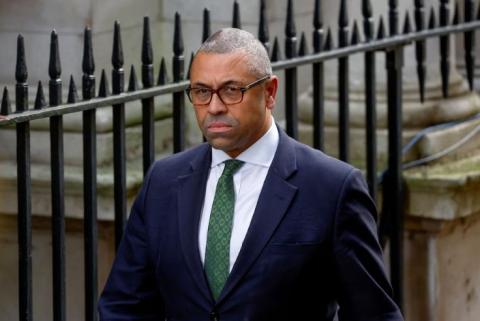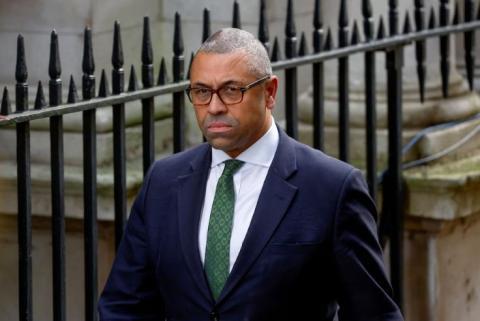
Truss has consistently outrun former finance minister Rishi Sunak by wide margins in polls of Conservative party members
LONDON: The race to become Britain’s next prime minister is in its final week, with Liz Truss appeared poised to secure the top job, along with daunting challenges.
Foreign Secretary Truss, 47, has consistently outrun 42-year-old former finance minister Rishi Sunak by wide margins in polls of Conservative party members who will decide the contest, which started in early July.
An estimated 200,000 Tory grassroots have been able to vote since earlier this month for their preferred candidate, before postal and online ballots close on Friday.
The winner will be announced next Monday and replaces outgoing leader Boris Johnson in Downing Street the following day — only to face immediate crises over the spiralling cost of living.
The unenviable job of leading Britain through its highest inflation in 40 years and warnings of an imminent recession arose after Johnson announced in early July that he would be standing down.
It followed months of scandals that eventually triggered Sunak and dozens of other ministers to resign from government, forcing his departure.
However, some ministers and MPs — including Truss — remained loyal to the end, arguing Johnson deserved more time to turn around his controversy-tarred three-year tenure.
Nearly 10,000 Tory members are reportedly so angry at his enforced resignation they are pushing the ruling party to allow a vote over whether to accept it.
The Tory hierarchy is resisting the move while Downing Street has distanced itself from the campaign, insisting Johnson will back the winner of the leadership fight.
Whoever that is may struggle to reunite the Conservatives, with the splits worsened by the bitter battle between Truss and Sunak.
Eight Conservative MPs initially qualified to run in the race, before the party’s MPs whittled that number down in five ballots.
Sunak was the early frontrunner, topping all those votes of Conservative MPs while Truss repeatedly finished third.
She scraped into the final pairing on July 20 by just eight votes.
However, once the run-off began she quickly became the frontrunner, winning the endorsements of big hitters in Johnson’s outgoing cabinet and stealing the support of several MPs from her rival’s camp.
Sunak, who has faced a backlash from some Tory members over his part in ousting Johnson, has been relegated to long-shot contender.
The two candidates have sparred over their policies and records in several television debates as well as a dozen hustings in front of members — the last of which will be held in London Wednesday evening.
But with surveys showing Truss leading by more than 30 points, the contest seems effectively over.
However, recent polls of the wider electorate show the challenge ahead.
The main opposition Labour party now boasts a double-digit lead over the Conservatives in a deteriorating economic landscape.
The next general election is due by January 2025 at the latest, but could come sooner, with most people expecting it in 2024.
The leadership contest has been dominated by how to respond to Britain’s growing economic woes, with the rival candidates and their camps descending into open political warfare.
Truss has pledged immediate tax cuts and renewed focus on economic growth, while assailing her rival for pushing taxes to record highs and presiding over declining growth.
Sunak has emphasised the need to maintain current taxes — including recent rises — in the short-term, while pledging more targeted support for the most needy during the cost-of-living crisis.
He has argued his finance ministry record during the pandemic shows he can help Britons through the economic woes.
His furlough scheme, which temporarily paid the wages of millions, is credited with staving off mass unemployment.
First elected to parliament in 2015 and a Brexit supporter during the 2016 referendum, Sunak has accused Truss of “fairytale economics” and claimed her tax cuts will worsen inflation.
But analysts say the campaign has shown Truss — first elected an MP in 2010 — possesses superior political experience and skills.
“She was able to communicate effectively,” said polling expert John Curtice, noting Sunak had appeared a “bit brittle.”
Politics professor Tim Bale, of Queen Mary University of London, noted Truss had in some ways defied her own record.
A minister in successive Tory governments for the past decade, who voted to remain in the European Union in 2016, she nonetheless showcased a populist anti-establishment image in the race.
“She’s somehow managed to present herself as more Brexiteer than Rishi Sunak, who actually voted to leave (the EU), which is a remarkable achievement,” said Bale.












